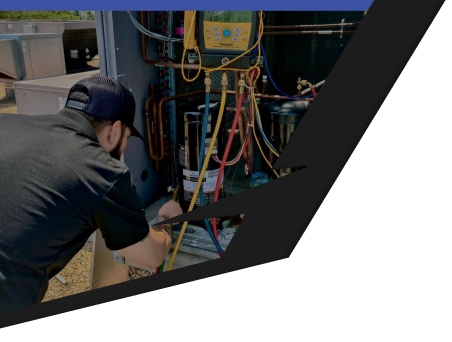Home air conditioning systems have evolved a lot in the last couple of decades. You can now find systems that use a variety of different types of energy sources, including electricity, natural gas, and even solar energy. But how do you know which type of system is best for you?
This article will help you narrow down your choices by answering some common questions about home air conditioning. We’ll also provide some useful tips to help you choose the right system for your needs as well as answer any questions you may have.
Let’s learn how to select the best home AC system for your situation.
How the Climate Where You Live Affects the Type of AC System You Need
You can find great home AC systems even in the colder areas of the country, but here are some factors to consider before you select the type of system you want. Heat is responsible for most home air conditioning costs, but a lower humidity can also result in higher energy bills.
Energy can be supplied by a combination of several different sources. Natural gas is generally the primary source of energy in many areas, but electricity can be a close second.
We recommend installing an Energy Star home air conditioning system. This type of AC is the first to be certified according to the U.S. Environmental Protection Agency (EPA).
Each unit is independently tested to meet strict criteria in order to receive the Energy Star label.
How Do You Know if Your Home Needs a New AC System?
Before you make any major decisions about a home air conditioning system, you need to know if you need one. Every home has its own unique ventilation needs, temperature requirements, and heating needs.
It’s impossible to know the exact needs of every home, so you’ll need to assess your own needs to decide whether it makes sense to upgrade your home’s air conditioning system.
What About Installation?
This may seem like a small consideration, but it’s not that easy. According to the National Energy Services, most local building departments require some sort of proof of insurance for installers before you can start the installation process. Therefore we would recommend you get with a professional AC company instead of attempting to replace an AC unit on your own.
Some local codes will also require the installer to come to your home for a site visit before getting started. If you hire someone, be sure to check up on their credentials and history.
Unfortunately, you cannot compare systems across the entire spectrum of options without knowing what you are looking for. You’ll need to ask yourself or a professional AC installer:
- How much do you spend on utilities each month?
- How big is your house and the number of rooms it contains?
- Will you be using your home as a vacation property, and how large will you need it to be?
What Makes a Good AC System?
An ideal home air conditioning system will provide good airflow throughout your home and keep your AC units in peak condition. Some factors to consider when choosing the right system include the following:
Budget: Ensure you can afford the cost of a new system or energy efficient cooling devices. Ensure you can afford the cost of a new system or energy efficient cooling devices.
Energy efficiency: Make sure that your system is efficient. Maximizing efficiency can make a big difference in your energy bills and overall air quality. Make sure that your system is efficient.
Design: Choose a system that matches your home’s exterior and interior design.
What Are the Different Types of Air Conditioners?
Commercial Air Conditioners
Many businesses prefer to have their own AC system because it is easier to control and maintain. They are also heavy duty workhorses designed to run continuously 24/7.
Commercial air conditioners can usually provide the same heat removal capabilities as their residential counterparts. You’ll typically see these air conditioners sold as ‘commercial units’ rather than as ‘residential units.’
Air conditioners for commercial use will typically need to be planned into your business budget. But as a business owner, you’ll need a way to cool your building regardless of what form the AC takes.
Window Air Conditioner
A standard window air conditioner consists of a compressor that draws cool air into the house from a window or door. The unit consists of a water reservoir, a humidifier, a fan, and a blower that blows the air through a coil that cools it.
A window unit usually doesn’t have a heater, but it will usually have a smaller fan that cools the air to a much more comfortable level, usually between 70°F and 77°F.
If you are lucky, the window unit may also have an automatic defroster that automatically puts the unit into an “energy conservation mode” when the temperature drops below 60°F.
Ductless Mini-Split System
This type of system uses a centralized air compressor. The compressor keeps the entire house (or apartment, condominium, etc.) cooled and on the lowest setting.
With a regular ducted system, you have to pump air through your entire house or building and then set the thermostat. This can be a hassle for most people.
The key advantage of a ductless split system is that they are extremely reliable. They do everything from helping those with allergies by using their superior particle filtering of the air to saving in costs over time.
Why you can rely on Cool Experts AC in Irving, Texas to professionally install Your AC system
Are you looking for an expert home AC system installation? You can find the best Air Conditioning company here in Irving, Texas. The professionals at Cool Experts AC know how to cool your home and will make sure that the system is installed and working properly for years to come.
Contact Cool Experts AC in Irving, TX today to get started.

